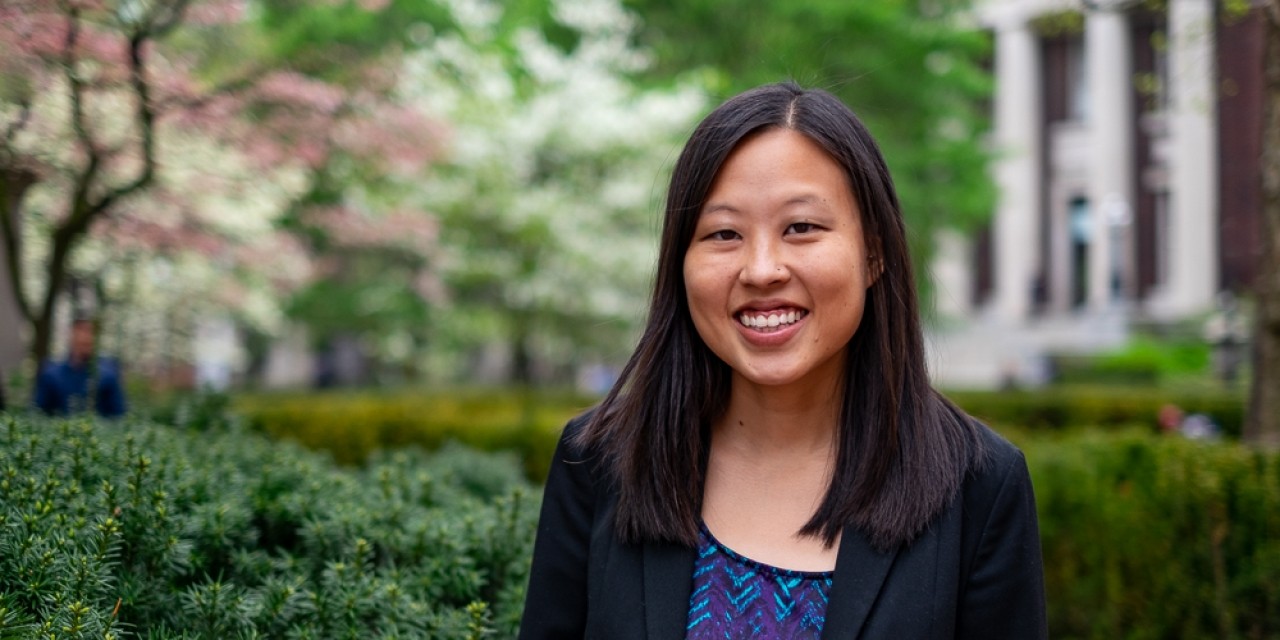Interview with Tiffany Huang, PhD Candidate in Sociology

Tiffany Huang collaborated with Professors Van C. Tran and Jennifer Lee on the paper “Revisiting the Asian Second-Generation Advantage,” published recently in Ethnic and Racial Studies. In this interview, Tiffany discusses her research, how she came to work with Professors Tran and Lee, and the inequities faced by many academics of color.
What is your thesis in “Revisiting the Asian second-generation advantage”?
We use national data to examine education and labor market outcomes for the second-generation children of five Asian immigrant groups—Chinese, Indians, Filipinos, Vietnamese, and Koreans. Prior research finds that second-generation Asian Americans achieve exceptionally highly in education, in part because of hyperselectivity—that is, their immigrant parents are more likely to have college educations compared with both U.S.-born Americans and to their non-migrant counterparts in their home countries.
We find that all five second-generation groups achieve exceptionally highly in education, but not all groups show intergenerational mobility. Second-generation Vietnamese, Chinese, and Koreans do show intergenerational mobility, while second-generation Indians and Filipinos do not. When it comes to labor market outcomes, second-generation Asian Americans, except for Chinese, are no more likely to be in professional or managerial occupations, compared with their white counterparts, when taking education into account. This finding suggests that the Asian second-generation advantage is confined to education and does not translate into exceptional labor market outcomes.
What was the experience like to collaborate with Professors Lee and Tran? How did it come about that the three of you teamed up on this research and paper?
I began to research second-generation Asian Americans' labor market outcomes after taking a class on racial inequality with Professor Carla Shedd. In that course, we read Jennifer Lee and Min Zhou's "The Asian American Achievement Paradox," which looks at how second-generation Chinese and Vietnamese Americans achieve so highly in education. I was curious about what happened once Asian Americans joined the workforce, and discovered that there was some, but not much, qualitative work in the area.
I ultimately conducted a study in which I interviewed 30 second-generation Asian Americans in the New York City area about their workplace experiences. I took seminars with both Professors Lee and Tran, and worked on this project in their classes. Professor Lee is also my advisor. So both of them were quite familiar with my research interests. Knowing this, Prof. Tran invited me to collaborate with him and Fei Guo (from Macquerie University) on a paper comparing labor market outcomes for Asian immigrants in Australia and the U.S., as well as on this paper with Professor Lee that's now been published in Ethnic and Racial Studies.
What is your own focus of research?
I am broadly interested in race, immigration, and identity, particularly for the second-generation children of immigrants. In addition to my work on Asian Americans' labor market outcomes, my dissertation project will examine how people navigate identity in the college application process.
Is there anything else you want to share with the GSAS community?
Collaborating with Professors Tran and Lee has been a great experience. They've both been role models not only as academics, but as mentors. Research (including my own) finds that in addition to discrimination and stereotyping, differential access to professional networks and mentorship contributes to workplace inequality. Faculty of color often take on a disproportionate share of mentoring and advising, and I am grateful for their work.
